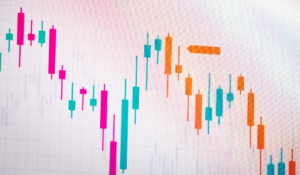Understanding the Impact of Greed
Greed, in the context of trading, often leads traders to take excessive risks and make impulsive decisions driven by the desire for significant returns. It can cloud judgment and distort rational decision-making processes. Although greed can provide short-term gains in certain market conditions, it is crucial to recognize its potential pitfalls.
Negative Effects of Greed on Trading
Excessive Risk-Taking
Greedy traders often disregard their predetermined take profit levels and expose themselves to substantial losses. They prioritize the pursuit of higher profits over risk management principles, jeopardizing their trading capital.
Missed Opportunities
The fear of missing out (FOMO) can drive traders to keep chasing trades, leading to poor decision-making and potential losses. By constantly seeking more, traders may overlook profitable opportunities and end up with suboptimal outcomes.
Inability to Feel Content
Greed can perpetuate a mindset of never feeling satisfied with one’s trading performance. Instead of acknowledging achievements and taking a moment to appreciate success, greedy traders tend to continually push for more, which can lead to burnout and poor decision-making.
Lack of Future Planning
Overly focused on immediate profits, greedy traders may neglect long-term strategies and fail to consider the broader market trends. This shortsightedness can hinder their ability to adapt to changing market conditions and make informed trading decisions.
Deviation from Set Limits
Greed can tempt traders to deviate from their pre-established trading plans and risk management rules. They may abandon their strategies and make impulsive trades driven solely by the desire for more profits, increasing the likelihood of losses.
Managing Greed for Successful Trading
Self-Awareness
Recognize and acknowledge the presence of greed in your trading behavior. Understanding its potential negative impact is the first step towards managing it effectively.
Establish Clear Trading Goals
Set realistic and achievable trading goals that align with your risk tolerance and overall trading strategy. Having a defined plan helps mitigate the influence of greed and keeps you focused on long-term success.
Stick to a Trading Plan
Develop a well-defined trading plan that includes entry and exit points, risk management guidelines, and profit targets. Adhere to this plan and avoid impulsive decisions driven by greed.
Practice Patience and Discipline
Cultivate patience and discipline in your trading approach. Avoid the temptation to overtrade or chase quick profits. Remember that successful trading is a marathon, not a sprint.
Continuous Learning
Invest time in understanding trading psychology and emotions. Educate yourself about the impact of greed and other emotions on trading performance. This knowledge will enable you to make more rational and informed trading decisions.
Key Takeaways
Greed can be a powerful force that both helps and hinders your trading success. While it may offer short-term gains in certain situations, its negative consequences can outweigh the benefits. By understanding the detrimental effects of greed and implementing effective strategies to manage it, traders can enhance their overall performance and achieve long-term success in the markets.
Frequently Asked Questions
Q: Is greed always detrimental to trading?
A: Greed can have negative consequences if it leads to impulsive decision-making, excessive risk-taking, and a lack of long-term planning. However, if managed effectively, it can drive traders to seek profitable opportunities and ride trends in the market.
Q: How can I control greed in trading?
A: Controlling greed requires self-awareness, setting clear trading goals, sticking to a well-defined trading plan, practicing patience and discipline, and continuous learning about trading psychology.
Q: What are the signs that greed is affecting my trading?
A: Signs that greed is influencing your trading include ignoring risk management principles, constantly seeking more trades, feeling unsatisfied despite profitable outcomes, and deviating from your trading plan.
Q: Can greed be beneficial in trading?
A: In certain market conditions, greed can lead to profitable trades. However, it is essential to exercise caution and balance the desire for profits with risk management and long-term planning.
Conclusion
Greed can be a formidable obstacle to successful trading if left unchecked. Recognizing its potential negative effects and implementing strategiesto manage it is crucial for consistent and profitable trading outcomes. By setting clear goals, adhering to a well-defined trading plan, and practicing patience and discipline, traders can navigate the emotional rollercoaster of trading and achieve long-term success in the financial markets.








